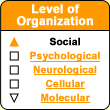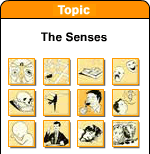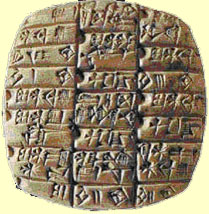In societies that have no form of writing, oral
tradition is the main and almost the only way of preserving
the lessons of the past. The set of oral utterances that
constitute this tradition expresses both the rules of individual
conduct and the rules of social relations. These utterances
include founding myths, historical accounts, mottoes, proverbs,
tales and legends, songs, poems, invocations, etc.
In these societies without writing, other mechanisms besides
language are also used to help maintain the body of knowledge.
Thus rituals, notably in religious observances, comprise
gestures that are reminders not only of beliefs but also
of past facts, such as the founding of a village, the forming
of various alliances, the sharing of a meal, and so on.
But over time, the members of society who perform these
rituals can lose their sacred meaning and end up reproducing
only their form. |
|
Just like oral language, writing can
be used to store and exchange information. But though human
societies seem to have been using articulate language for
about the past 100,000 years, writing does not seem to have
appeared until just slightly over 5,000 years ago.
Writing caused a fundamental shift in civilization. It
favoured the appearance of large cities, legal codes, business
accounting, and trade instead of barter. The coining of
money is another form of data storage that was made possible
by writing.
Some anthropologists associate the invention of logic, science,
and philosophy with the invention of alphabetical writing.
Lastly, pedagogy, defined as the broader transmission of
such knowledge, also benefited greatly from the advent of
writing. |





